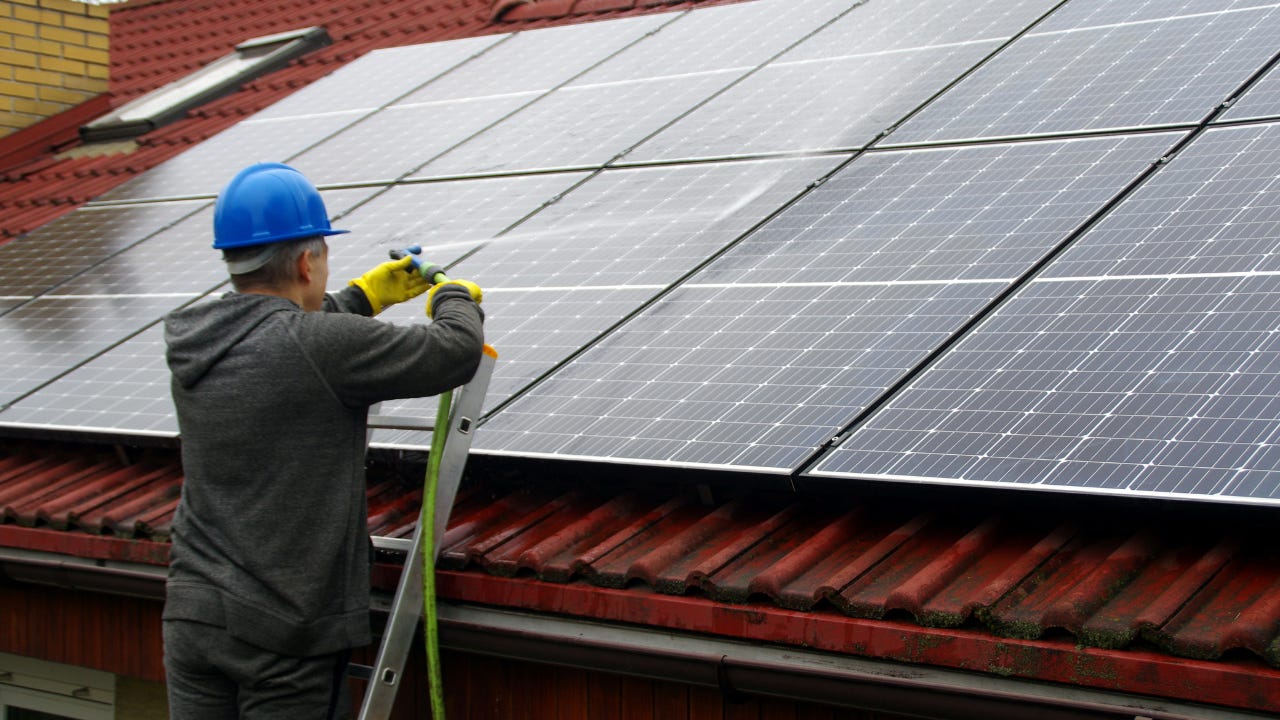
DIY Solar Panel Cleaning: Essential Tips for Efficiency
Maintaining clean solar panels is crucial for optimal energy production. This article provides essential DIY tips for cleaning your solar panels to ensure efficiency and maximize the benefits of solar energy.
Understanding the Importance of Clean Solar Panels
Before delving into cleaning tips, it’s essential to understand why keeping your solar panels clean is vital. Dust, dirt, bird droppings, and other debris can accumulate on the panels, hindering sunlight absorption. Regular cleaning helps maintain peak efficiency and ensures that your solar panels operate at their full capacity.
Choosing the Right Time for Cleaning
Selecting the right time to clean your solar panels can significantly impact the results. It’s advisable to clean them early in the morning or late in the afternoon when the panels are cool. Cleaning during the day when the panels are hot may result in rapid water evaporation, leaving behind streaks and water spots.
Using Soft Materials for Cleaning
When cleaning solar panels, opt for soft materials to avoid scratches or damage to the surface. Soft brushes, sponges, or non-abrasive cloths are suitable for removing dust and grime. Avoid abrasive materials or harsh chemicals that may compromise the integrity of the panels.
DIY Cleaning Solution: Water and Mild Soap
A simple and effective DIY cleaning solution involves using water and mild soap. Mix a small amount of mild dish soap with water to create a gentle cleaning solution. Apply the solution to the solar panels and use a soft brush or sponge to clean the surface. Follow up with a thorough rinse using clean water.
Investing in a Quality Squeegee
For effective water removal and a streak-free finish, consider investing in a quality squeegee. A squeegee is particularly useful for larger solar panel arrays, making the cleaning process more efficient. Ensure the squeegee is clean and free of debris to avoid scratching the panels.
Regular Inspection for Damages
While cleaning, take the opportunity to inspect the solar panels for any damages or issues. Look for cracks, loose connections, or signs of wear. Early detection of problems allows for prompt repairs, ensuring the longevity and reliability of your solar panel system.
Applying a Protective Coating
To minimize the frequency of cleaning, consider applying a protective coating to the solar panels. Anti-reflective coatings or self-cleaning coatings can repel dust and dirt, reducing the need for frequent cleaning. Check with your solar panel manufacturer for recommended coatings suitable for your system.
Safety Precautions During Cleaning
Safety should be a priority when cleaning solar panels, especially if they are installed on rooftops. Use appropriate safety gear, such as non-slip shoes and safety harnesses. If accessing rooftop panels, ensure the ladder is stable and positioned on a flat surface.
Monitoring Energy Output After Cleaning
After cleaning your solar panels, monitor the energy output to gauge the effectiveness of the cleaning process. A noticeable increase in energy production indicates that the cleaning efforts have been successful. Regular monitoring helps identify the optimal cleaning frequency for your specific location and environmental conditions.
Seeking Professional Cleaning Services
While DIY cleaning is effective, there may be instances where professional cleaning services are warranted. Consider hiring professionals for periodic deep cleaning, especially if your solar panels are in hard-to-reach locations or if you notice persistent issues.
To explore more insights on DIY solar panel cleaning tips, visit DIY Solar Panel Cleaning Tips.
Conclusion: Ensuring Long-Term Solar Efficiency
In conclusion, DIY solar panel cleaning is a proactive measure to ensure the long-term efficiency of your solar energy system. By following these essential tips, you can maintain clean and optimal-performing solar panels, contributing to increased energy production and a more sustainable future.




